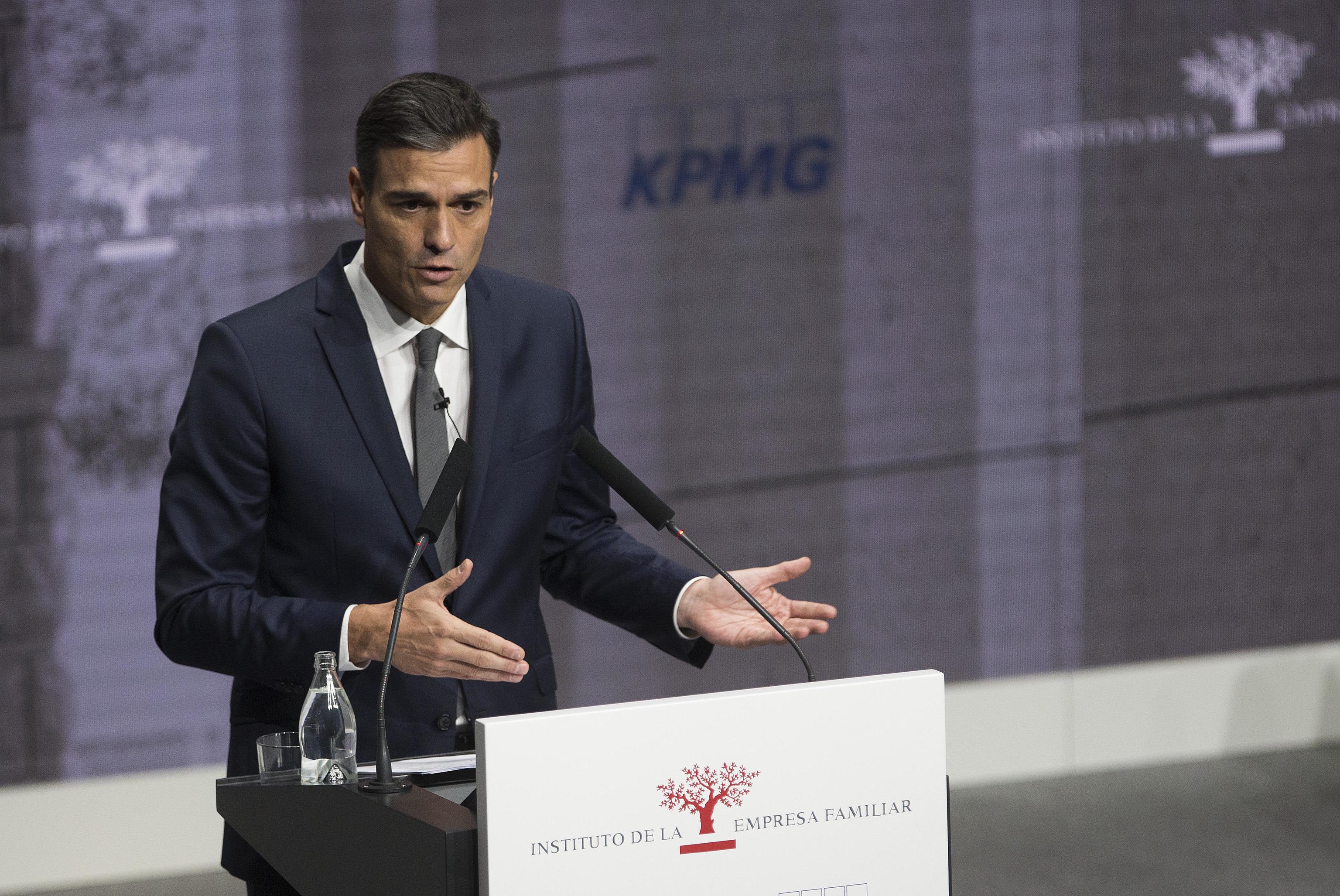In Christiansborg Palace, in Copenhagen, it's cold, autumn has arrived, but the European leaders parade before the press in suits. Except for Pedro Sánchez, who arrives just in time, stepping out of his car wrapped in a coat and a scarf around his neck. The Spanish Prime Minister sets his own course among the rest of the European leaders. In a context where Europe is almost in a pre-war environment, with leaders adopting a language of war and pressuring all countries to accelerate their rearmament, invest more in military spending, the Spanish Prime Minister does not deviate from his roadmap. Spain shows its "absolute support" for the security of the eastern European flank, but instead of more weapons, it works to open a new, currently rough path: investing to combat the climate emergency is investing in security.
Defense spending is a thorn in Sánchez's side. His governing partners do not agree with increasing spending in this area. This explains why La Moncloa avoids Congress and increases this investment through methods that do not require the support of parliamentary groups. However, the pressure from both the European Union and NATO persists. The Russian threat drives demands for increased spending, especially with countries in the east and north looking towards those in the south.
The Spanish Prime Minister takes refuge in his increased defense spending, a year-on-year increase of 43.11% according to the Alliance, his presence in all NATO missions, and paves a path he wants to lead: considering spending against climate change as defense and security spending. Sánchez plays a balancing act. He resists pressure to spend more while showing willingness to comply with Europe and the Alliance. He advocates for a "defense industry that provides us with sufficient autonomy and capabilities to respond to the geopolitical challenge posed by Putin's neo-imperialism," he stated on Wednesday.
Out of the additional 10.471 million that the Government plans to spend this year within its Industrial and Technological Plan for Security and Defense, 1.751.53 million are allocated to supporting emergency management and natural disaster relief.
This is a battle that Sánchez has been fighting within the EU for months, so far without gaining many supporters. Europe talks about missiles, tanks, and ammunition, leaving little room to explore new paths. "Climate change kills," defends the Prime Minister. Spain does not give up. The rise of the right and the far-right in Europe, and also in the rest of the world, leads La Moncloa to believe that the Prime Minister plays a prominent role as a social democratic leader, which involves championing progressive positions such as viewing the fight against climate change as a multiplier of threats for countries, especially those as exposed as Spain. Of course, the Prime Minister of Denmark, Mette Frederiksen, is from the same political family but holds different positions. Sánchez presents numbers to support his stance: in the last decade in Spain, costs from the climate emergency have amounted to 30,000 million in material losses and 20,000 lives lost.
Sánchez's discourse clashes directly with the prevailing one in Europe. While Frederiksen herself, in the final press conference of the presidents' meeting, wanted to make a gesture to the Prime Minister and pointed out that within the concept of security, "immigration and climate change" should be included. However, the President of the European Commission, Ursula von der Leyen, has repeatedly stated that the drone wall is a "top priority"; or that the Prime Minister of Finland, Petteri Orpo, last week called for solidarity from southern countries. Including Spain, of course.
The same happens when speaking with ambassadors from countries not as far north or close to Russia, who also believe that defense against Vladimir Putin concerns the entire EU and requires increased defense spending. "It's a common issue, a European-level matter." Europe talks about weapons, anti-drone walls, war, and million-dollar investments. That is the reality and the greatest urgency in Europe.
Spain's position also differs from that defended by the Prime Minister of Italy, Giorgia Meloni, who not only shows much more involvement and alignment with the common European goal but also manages to introduce an issue of great importance for her country in a way that does not clash as much as Sánchez's discourse does. "The Alliance's borders are vast. If we make the mistake of only looking at the eastern flank and forget that there is a southern one, for example, we risk not being effective," stated Meloni upon arriving at the meeting in Copenhagen, referring to the problems Italy faces with illegal immigration, which are a crucial issue in Italy.
"Spain is supportive," maintain sources from the Spanish delegation, who say they are not concerned about voices calling for more rapid investment in military equipment. Sánchez's team says there should be no doubt about Spain's commitment to security in Europe and refers to Spain's presence in NATO missions, with nearly 2,000 troops on the eastern flank. The sources consulted highlight Sánchez's position at the last NATO summit, where he refused to commit to spending 5% of GDP on defense, possibly triggering someone to claim that our country is not supportive. "We are supportive today and tomorrow," they counter. Spain, along with countries like Italy or Greece, believes that the importance and needs of the southern flank should not be overlooked.
